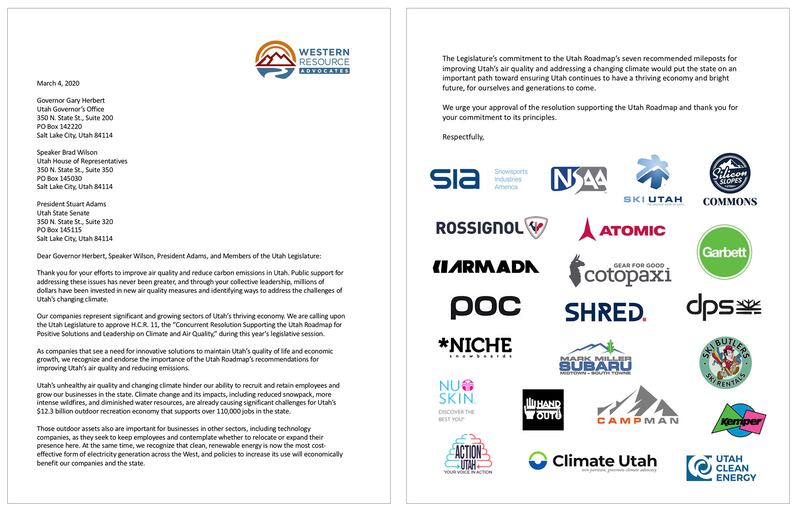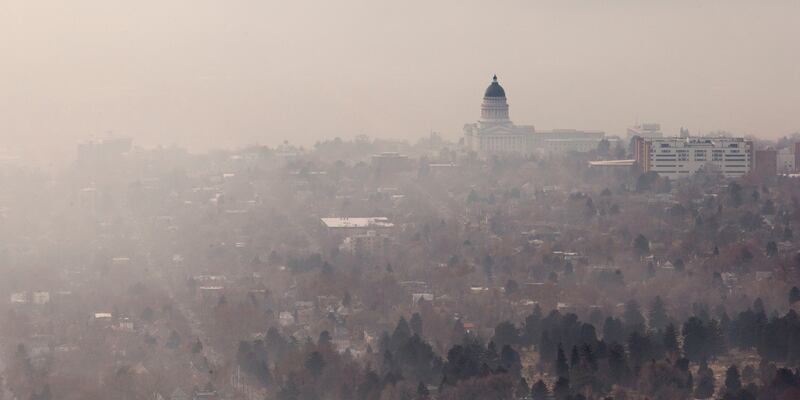SALT LAKE CITY — A letter delivered to Utah’s legislative leaders and Gov. Gary Herbert Thursday urges passage of a resolution endorsing a think tank’s recommendations to curb the state’s air pollution problems with signatories representing nearly 1,700 companies and groups across the nation, including 400 in Utah.
HCR11, by Rep. Joel Briscoe, D-Salt Lake City, calls for incorporating the seven key recommendations on air pollution and a changing climate put out by the Kem C. Gardner Policy Institute at the University of Utah.
It is called the Utah Roadmap, and it says the state should adopt emission reduction goals by cutting pollutants below 2017 levels by 2050 and reducing carbon dioxide levels by 50% under 2005 levels by 2030 and by 80% in 2050.
“Utah’s unhealthy air quality and changing climate hinder our ability to recruit and retain employees and grow our business in the state,” the letter reads. “Changing climate and its impacts, including reduced snowpack, more intense wildfires and diminished water resources, are already causing significant challenges for Utah’s $12.3 billion outdoor recreation economy that supports over 110,000 jobs in the state.”
The letter was signed by four outdoor industry and technology company trade associations, including Snowsports Industries of America and Utah’s Silicon Slopes Commons, as well as 18 other businesses and organizations.
But the resolution remains in limbo, stuck in the House Rules Committee since mid-February.
The Utah Roadmap was developed at the request of the state Legislature with $200,000 in funding in 2018 with a tight time frame for turnaround. It drew on the technical expertise of a team of nearly 40 members who investigated solutions to tamp emissions in light of the state’s explosive population growth, its desire to land the 2030 Olympics and, of course, to diminish adverse health impacts from exposure to air pollution.

Data from Utah air quality regulators show that air pollution on the Wasatch Front is down 49% from 2002 to 2017, despite explosive population growth.
The area still struggles with ozone pollution problems in the summer and elevated levels of PM2.5, or fine particulate matter, in the winter.
Signatories to the letter say adoption of the Utah Roadmap’s principles would signal a strong commitment to decreasing air pollution and its harmful economic and health impacts.
“The Legislature’s commitment to the Utah Roadmap’s seven recommended mileposts for improving Utah’s air quality and addressing a changing climate would put the state on an important path toward ensuring Utah continues to have a thriving economy and bright future, for ourselves and generations to come,” it said.



